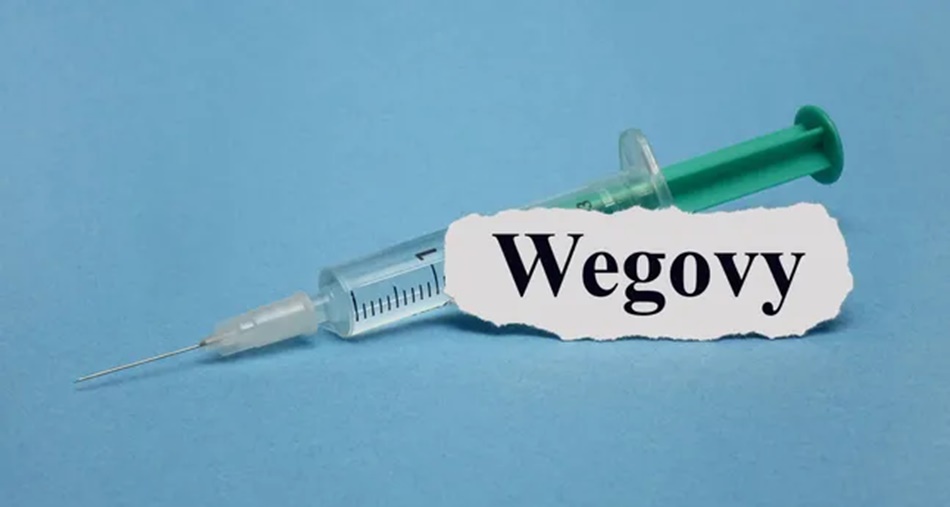Hyped weight loss injection could be harmful to health
Wegovy is hailed by many as a miracle weight-loss drug. The syringe is also popular with celebrities. Now there are serious allegations.

Inconvenience for the supplier of the coveted Wegovy weight loss syringe: A factory that fills the injection pens for Wegovy for the Danish pharmaceutical company Novo Nordisk, among other things, has repeatedly violated US sterile safety regulations in recent years, according to documents evaluated by the Reuters news agency show.
The staff there also failed to carry out the necessary quality controls. “Standard operating procedures are not being followed or are deficient,” the US Food and Drug Administration’s report said after the initial inspection.
The violations at contract manufacturer Catalent, Wegovy’s bottler, were identified by FDA inspectors. They visited the Brussels plant in October 2021 and August 2022 to verify compliance with manufacturing regulations, detailed FDA reports show.
Serious violations in production
While there is no evidence that Catalent’s failure to comply with regulations has resulted in harm to Wegovy users. However, inspectors found that failures at the facility, which fills syringes for pharmaceutical customers, represent the most serious form of violation.
Catalent reportedly shut down the facility twice between the two inspections. In November 2022, the FDA released a final decision on the investigation results, allowing the factory to remain open while the issues were resolved.
Novo Nordisk and Catalent have publicly stated that shipments of the drug have been delayed throughout 2022 while Catalent has addressed issues found during FDA inspections — without detailing what was found.
The companies do not comment
The quality control problems have not been reported so far. A spokesman for Novo said the company immediately made any manufacturing delays public. Catalent said it ensures high-quality production and resolves any compliance issues promptly. Both companies and the FDA declined to comment on the specific inspection findings.
Since Wegovy was approved in the US in June 2021, millions of people have taken the drug to lose weight. A real hype has arisen about the drug, which is said to have helped celebrities like Tesla boss Elon Musk and reality star Kim Kardashian lose weight – also fueled by social networks.
At Novo Nordisk, sales in the obesity business more than doubled to the equivalent of 2.26 billion euros last year alone. The hype made the Danes the second most valuable listed company in Europe after the luxury group LVMH.
No sterile conditions in the facilities
The most significant findings made by the FDA during its October 2021 visit to Catalent in Brussels related to air filtration systems required to maintain sterile conditions. Inspectors examining historical operating data found that the system on a bottling line had failed repeatedly between 2017 and 2021, causing sterility in the area where drugs were manufactured to be “compromised,” according to the FDA Documents.
The August 2022 inspection found that new air quality issues in sterile areas had emerged since the first visit. During both visits, inspectors found that Catalent personnel failed to complete required safety checks, including regularly checking equipment for microbial contamination.
The FDA reports do not indicate how many bottling plants were inspected or what drugs were manufactured at the plants inspected. But four regulatory experts and two former FDA inspectors who reviewed the documents told Reuters the findings raise concerns about the safety of all production at the factory, including for Wegovy.
The FDA has not acted yet
A Catalent spokesman said the company’s facilities worldwide manufacture more than 8,000 products and undergo dozens of regulatory inspections annually. According to the spokesman, production at the Brussels factory “has been paused occasionally to carry out scheduled maintenance and corrective and preventive actions that respond to regulatory observations.”
The FDA said the agency “remains vigilant in addressing potential issues in the global supply chain” to maintain consumer confidence in drug safety. Steven Lynn, a former FDA product quality director-turned-consultant, said the problems identified with the factory’s air system in the sterile areas were “worrying.” However, the FDA would not hesitate to intervene if there was a clear safety threat.
A dozen pharmaceutical industry experts interviewed by Reuters stressed that the consequences of a sterility error in drug filling could be serious. Microbial contamination of medicines injected into the body can be deadly. But FDA inspectors have reported no sign of such contamination at the Brussels factory.


